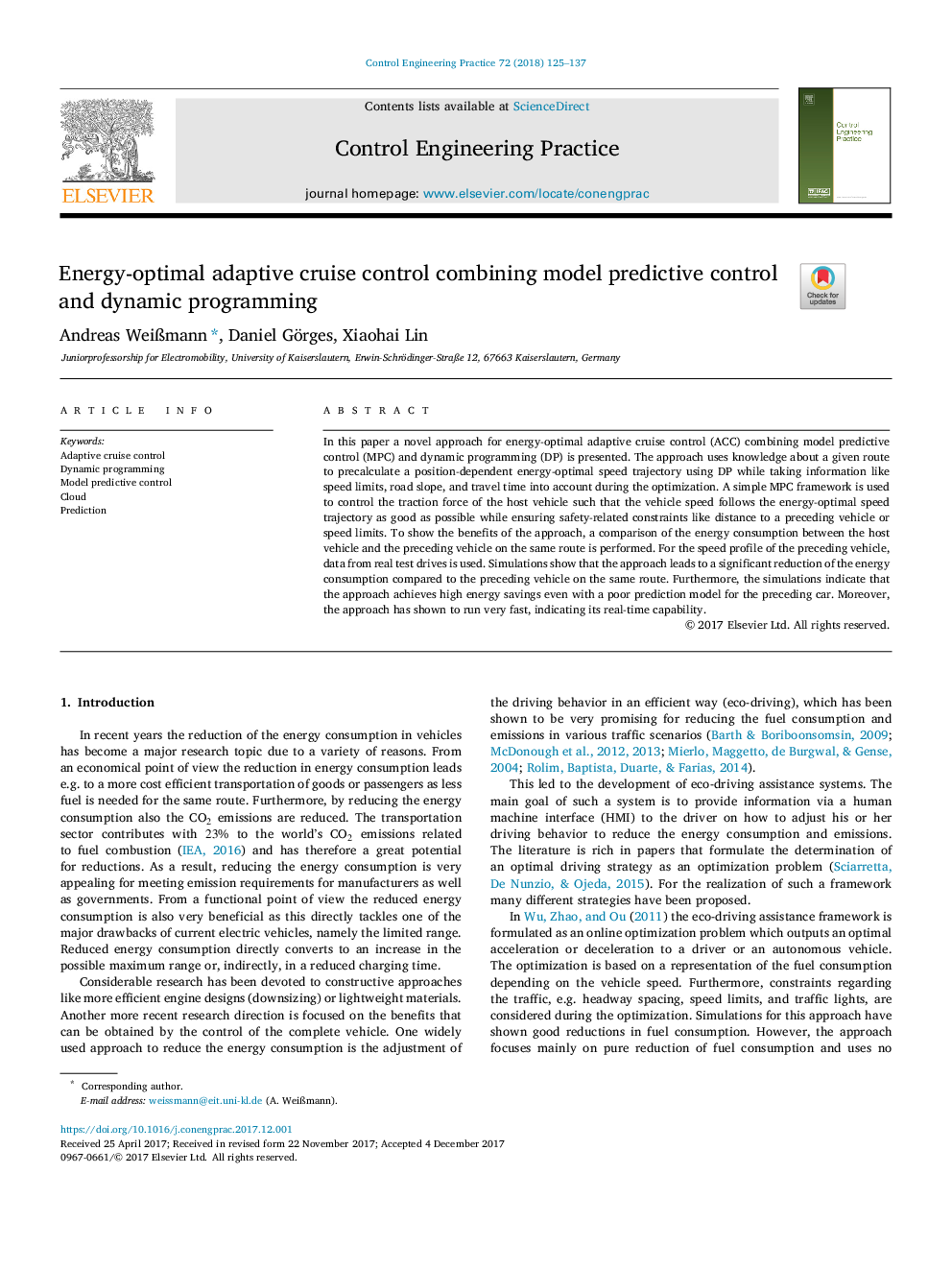| Article ID | Journal | Published Year | Pages | File Type |
|---|---|---|---|---|
| 7110442 | Control Engineering Practice | 2018 | 13 Pages |
Abstract
In this paper a novel approach for energy-optimal adaptive cruise control (ACC) combining model predictive control (MPC) and dynamic programming (DP) is presented. The approach uses knowledge about a given route to precalculate a position-dependent energy-optimal speed trajectory using DP while taking information like speed limits, road slope, and travel time into account during the optimization. A simple MPC framework is used to control the traction force of the host vehicle such that the vehicle speed follows the energy-optimal speed trajectory as good as possible while ensuring safety-related constraints like distance to a preceding vehicle or speed limits. To show the benefits of the approach, a comparison of the energy consumption between the host vehicle and the preceding vehicle on the same route is performed. For the speed profile of the preceding vehicle, data from real test drives is used. Simulations show that the approach leads to a significant reduction of the energy consumption compared to the preceding vehicle on the same route. Furthermore, the simulations indicate that the approach achieves high energy savings even with a poor prediction model for the preceding car. Moreover, the approach has shown to run very fast, indicating its real-time capability.
Related Topics
Physical Sciences and Engineering
Engineering
Aerospace Engineering
Authors
Andreas WeiÃmann, Daniel Görges, Xiaohai Lin,
